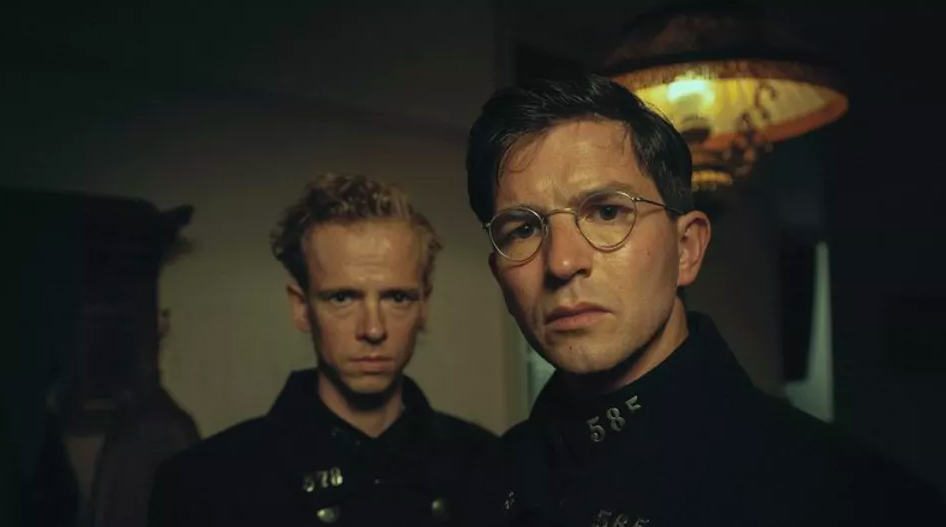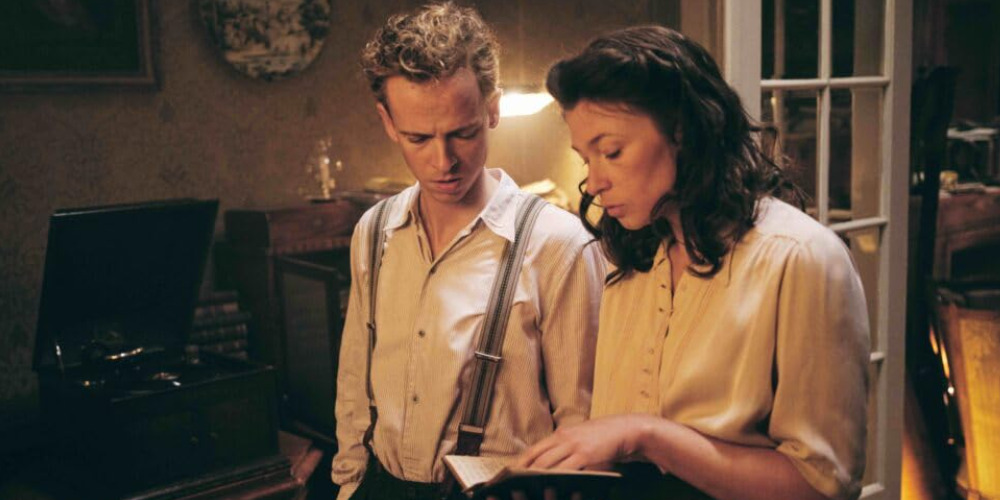In the Netflix Belgian war drama film, ‘Will,’ the audience becomes spectators to the harrowing lives of Antwerp citizens who are compelled into inaction, collaboration, or resistance after the city’s Nazi occupation. The story follows the protagonist, Wilfried Wils, an artist-turned-police-officer who has instructions to comply with the German officials terrorizing the city’s Jewish population. Nevertheless, neither Wils nor his partner, Lode, can remain complacent for long and end up enlisting in the city’s resistance efforts, joined by Lode’s sister, Yvette. However, as their moral but unlawful actions catch up to them, Wils finds himself torn between what’s right and what’s safe.
The film charts a historical journey during the time of the Second World War. It depicts the horrors of society through a unique lens previously untapped in a majority of mainstream media. As such, Wils and his storyline remain fascinatingly authentic, leading to natural audience speculation about its basis in real life.
Wil: Is it a True Story?
Given the historical context of ‘Will,’ the film holds nuanced ties to reality. While the exact events as they unfold aren’t directly inspired by a true story, the setting, characters, and experiences have tangible connections to real-life stories. For starters, ‘Will’ is a book-to-movie adaptation of Jeroen Olyslaegers’ 2016 eponymous novel, ‘Wil,’ a staple in modern Dutch Literature.

Despite the book’s fiction tag, Wil’s character and story find their origin in the brutal and monumental reality of Antwerp’s Nazi occupation during the 1940s. Author Olyslaegers held a personal connection to the same time period through his grandfather, who was a Nazi collaborator in his youth. Where many others attempted to move on from the war’s atrocities in its aftermath, the author’s grandfather, as it would turn out, remained stuck in the past.
As a result, the man constantly discussed his experiences with his grandson, Olyslaegers. In fact, the author’s first hangover, at fifteen, came after a night of drinking with his grandfather, wherein the latter regaled him with horrific stories of the past. Nevertheless, nothing came out of these experiences for a long time until, years later, the author, in his adulthood, visited a scholarly discussion with Herman van Goethem, a renowned history professor.
During the discussion, Goethem showcased a police document from 1942 describing German forces, aided by the Antwerp police, rounding up Jewish individuals and families from their homes. Olyslaegers recounted the gathering in a conversation with the National Center of Writing and said, “The police report is full of descriptions of terrible violence. During the horrific mayhem of the round-up, the policeman and his colleague knock on a door in the Kruikstraat. A Jewish man opens the door and cuts his throat with a razor right in front of them. Inside, they find the rest of the family poisoned at the kitchen table…”
Olyslaegers lived not too far from the apartment described in the police report. Thus, with a view of the location where such horrors occurred not too far back in the past, the author realized he couldn’t stop thinking about the event. Furthermore, he’s reminded of a distant relative who worked as a maid in the same area in a house that once belonged to a Posh Jewish family. After German forces packed up and sent the Jewish population to their deaths at Auschwitz, Olyslaegers’ aunt continued to live in the apartment with an SS Officer, no less.
“On that day, a story came looking for me,” said Olyslaegers, highlighting the instrumental impact that his past had in his storytelling. “It knocked twice on my door. That’s the reason why I wrote this book.”
As such, it remains evident that Olyslaegers’ book, though not modeled after a particular historical account, as it unfolded in real life, holds great relation to reality. Although not biographical, his novel tells an incredibly real story that strives to look at history from a different perspective, bereft of the luxury of hindsight. For the same reason, the story remains intricately tied to reality.
Tim Mielants’ cinematic adaptation is relatively faithful to its source material while also bringing about substantial change. Nevertheless, at its core, his film maintains the realism that its predecessor book introduced. Thus, ultimately, the film, though technically a fictitious piece of media, holds undeniable roots in reality.
Read More: Will: Why Does Yvette Kill Herself?


You must be logged in to post a comment.